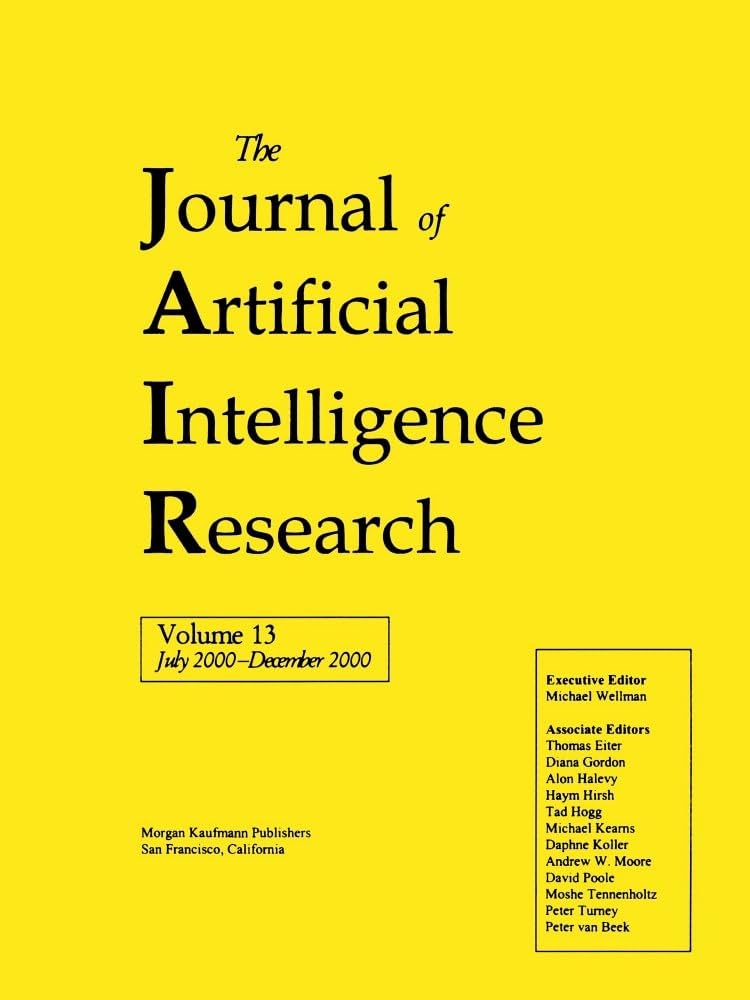具有度量时间算子的数据程序的有限可物化性
IF 4.5
3区 计算机科学
Q2 COMPUTER SCIENCE, ARTIFICIAL INTELLIGENCE
引用次数: 2
摘要
DatalogMTL是Datalog的扩展,带有度量时态运算符,最近在流推理和基于时态本体的数据访问中得到了应用。在普通Datalog中,物化(也称为前向链)自然地在有限多个步骤中终止,而在DatalogMTL中达到固定点可能需要无限多轮规则应用程序。因此,现有的推理系统采用其他方法,例如构造大型b本文章由计算机程序翻译,如有差异,请以英文原文为准。
Finite Materialisability of Datalog Programs with Metric Temporal Operators
DatalogMTL is an extension of Datalog with metric temporal operators that has recently found applications in stream reasoning and temporal ontology-based data access. In contrast to plain Datalog, where materialisation (a.k.a. forward chaining) naturally terminates in finitely many steps, reaching a fixpoint in DatalogMTL may require infinitely many rounds of rule applications. As a result, existing reasoning systems resort to other approaches, such as constructing large Büchi automata, whose implementations turn out to be highly inefficient in practice.
In this paper, we propose and study finitely materialisable DatalogMTL programs, for which forward chaining reasoning is guaranteed to terminate. We consider a data-dependent notion of finite materialisability of a program, where termination is guaranteed for a given dataset, as well as a data-independent notion, where termination is guaranteed regardless of the dataset. We show that, for bounded programs (a natural DatalogMTL fragment for which reasoning is as hard as in the full language), checking data-dependent finite materialisability is ExpSpace-complete in combined complexity and PSpace-complete in data complexity; furthermore, we propose a practical materialisation-based decision procedure that works in doubly exponential time. We show that checking data-independent finite materialisability for bounded progams is computationally easier, namely ExpTime-complete; moreover, we propose sufficient conditions for data-indenpendent finite materialisability that can be efficiently checked. We provide also the complexity landscape of fact entailment for different classes of finitely materialisable programs; surprisingly, we could identify a large class of finitely materialisable programs, called MTL-acyclic programs, for which fact entailment has exactly the same data and combined complexity as in plain Datalog, which makes this fragment especially well suited for big-scale applications.
求助全文
通过发布文献求助,成功后即可免费获取论文全文。
去求助
来源期刊

Journal of Artificial Intelligence Research
工程技术-计算机:人工智能
CiteScore
9.60
自引率
4.00%
发文量
98
审稿时长
4 months
期刊介绍:
JAIR(ISSN 1076 - 9757) covers all areas of artificial intelligence (AI), publishing refereed research articles, survey articles, and technical notes. Established in 1993 as one of the first electronic scientific journals, JAIR is indexed by INSPEC, Science Citation Index, and MathSciNet. JAIR reviews papers within approximately three months of submission and publishes accepted articles on the internet immediately upon receiving the final versions. JAIR articles are published for free distribution on the internet by the AI Access Foundation, and for purchase in bound volumes by AAAI Press.
 求助内容:
求助内容: 应助结果提醒方式:
应助结果提醒方式:


